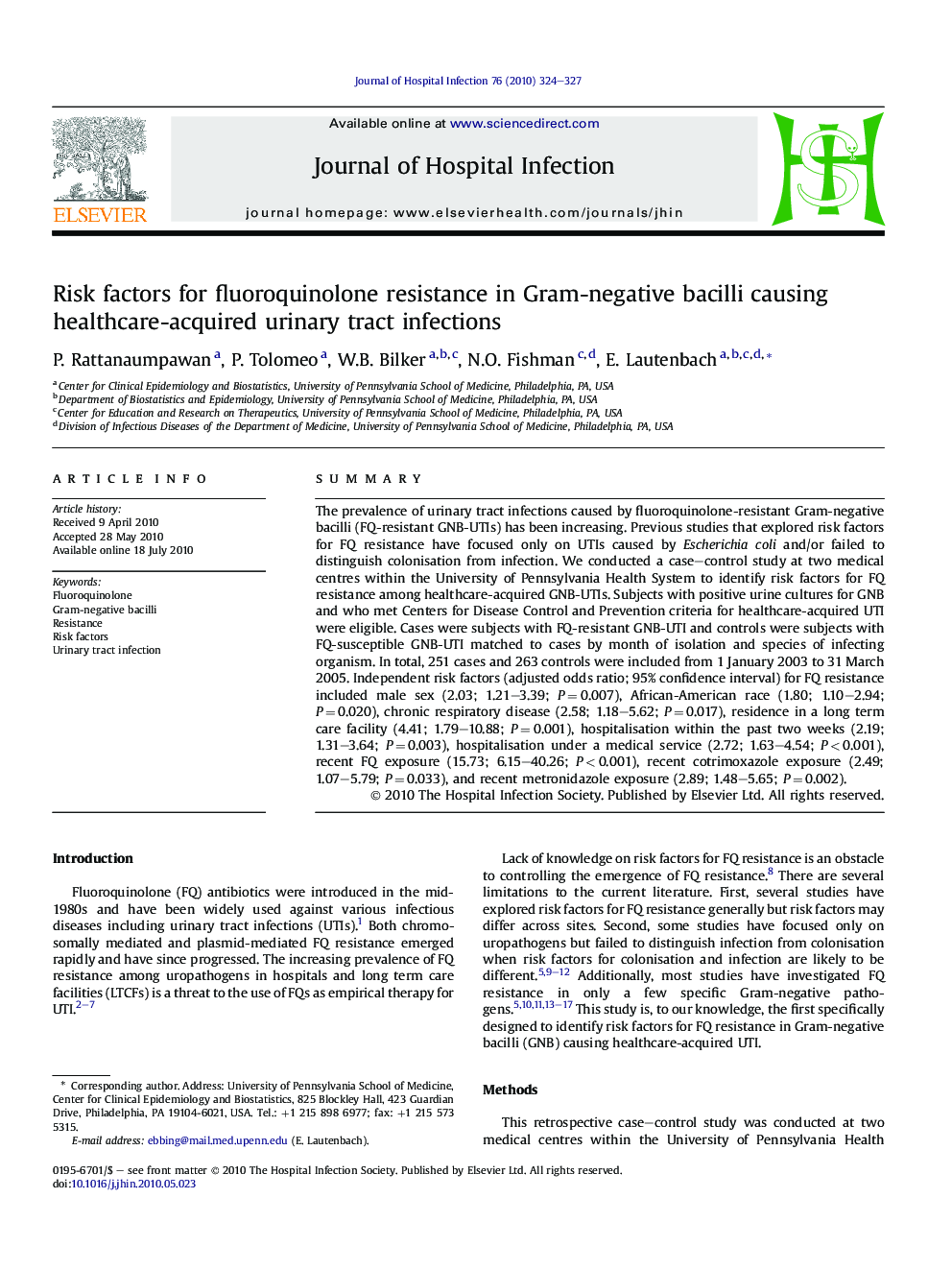| Article ID | Journal | Published Year | Pages | File Type |
|---|---|---|---|---|
| 3372488 | Journal of Hospital Infection | 2010 | 4 Pages |
SummaryThe prevalence of urinary tract infections caused by fluoroquinolone-resistant Gram-negative bacilli (FQ-resistant GNB-UTIs) has been increasing. Previous studies that explored risk factors for FQ resistance have focused only on UTIs caused by Escherichia coli and/or failed to distinguish colonisation from infection. We conducted a case–control study at two medical centres within the University of Pennsylvania Health System to identify risk factors for FQ resistance among healthcare-acquired GNB-UTIs. Subjects with positive urine cultures for GNB and who met Centers for Disease Control and Prevention criteria for healthcare-acquired UTI were eligible. Cases were subjects with FQ-resistant GNB-UTI and controls were subjects with FQ-susceptible GNB-UTI matched to cases by month of isolation and species of infecting organism. In total, 251 cases and 263 controls were included from 1 January 2003 to 31 March 2005. Independent risk factors (adjusted odds ratio; 95% confidence interval) for FQ resistance included male sex (2.03; 1.21–3.39; P = 0.007), African-American race (1.80; 1.10–2.94; P = 0.020), chronic respiratory disease (2.58; 1.18–5.62; P = 0.017), residence in a long term care facility (4.41; 1.79–10.88; P = 0.001), hospitalisation within the past two weeks (2.19; 1.31–3.64; P = 0.003), hospitalisation under a medical service (2.72; 1.63–4.54; P < 0.001), recent FQ exposure (15.73; 6.15–40.26; P < 0.001), recent cotrimoxazole exposure (2.49; 1.07–5.79; P = 0.033), and recent metronidazole exposure (2.89; 1.48–5.65; P = 0.002).
